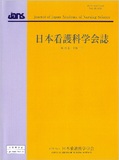Japanese
English
- 販売していません
- Abstract 文献概要
- 参考文献 Reference
要旨
目的:健康課題に共に取り組む市民と保健医療専門職(専門職)とのPeople-Centered Care(PCC)パートナーシップ-16尺度を開発し,信頼性と妥当性を検討した.
方法:PCCパートナーシップ尺度原案37項目を用いて市民と専門職を対象に調査し,内容妥当性の検討後,天井効果とI-T相関分析,主成分分析および確認的因子分析により,8因子構造の信頼性と妥当性を分析し,モデルの適合度の確認を行った.
結果:有効回答は329部であり,尺度は16項目に精錬された.PCCの構成要素8つによる分析の結果,8下位尺度では負荷量が .88以上,寄与率は77.0%以上,Cronbach's αは .70以上が確認された.PCCパートナーシップ尺度得点は「協同効用因子」得点と正の相関が認められた.また8因子16項目の仮説モデルの適合度を確認的因子分析で検討し,整合性を認めた.
結論:PCCパートナーシップ尺度16項目8因子構造を開発し,信頼性と妥当性が確保できた.
Objective: To develop a scale to measure the level of People-Centered Care (PCC) Partnership between community members and healthcare providers and to examine its reliability and validity.
Method: A draft scale (37 items) was distributed to community members and healthcare providers. The first survey assessed the content validity, and second survey assessed reliability, validity, the confirmatory factor analysis, and model suitability of the scale.
Result: The number of valid responses was 329 (237 community members and 92 healthcare providers). Considering ceiling effect and item-total correlation, the draft scale was organized to comprise 16 items. Our principal component analysis for 8 factor measure components showed 0.88 loading with 77% contribution rate (Cronbach's α > .70). PCC Partnership scale score was positively correlated with a usefulness of cooperation factor called “a scale to measure belief in cooperation”. The fit factor of the 8-factor, 16-item temporary model was examined in the confirmatory factor analysis, which showed acceptable consistency.
Conclusion: We developed PCC Partnership-16 (8-factor with 16-item) and confirmed its reliability and validity.
Copyright © 2020, Japan Academy of Nursing Science. All rights reserved.


